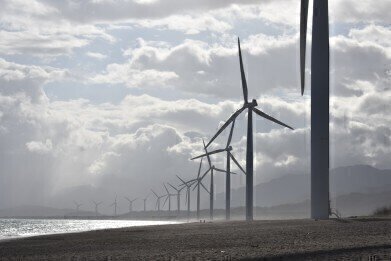Environmental Laboratory
Why Australia is Rewarding Innovation in the Fight Against Climate Change
Dec 13 2015
Australian foreign minister Julie Bishop used the Paris Climate Change Summit as a platform to reiterate her – and her country’s – belief that the ills of climate change will be avoided through technological innovation.
Bishop flew into Paris for the final week of talks, heading up Australia’s negotiating team as 150 leaders from around the world struggled to hammer out a solution to the growing problem of global warming and climate change. She said that subsidies and grants rewarding technological research – including innovative ideas such as those being discussed at events like the Air Quality and Emissions Show 2015 – were proof of Australian environmental action.
Balancing Economy and Environment
Bishop told delegates in Paris that technological breakthroughs would provide the solution to the impending energy crisis and cited Prime Minister Malcolm Turnbull’s recent pledge to push for a thriving economy through innovation as proof of Australia’s commitment to fighting climate change.
“Today in Australia the prime minister launched a new national innovation and science agenda to place innovation at the heart of our economy,” said Bishop in her introductory statement. “Australia will lead by example in the way we invest in and reward technology… it will be innovation and technological breakthroughs that will ultimately bring the breakthroughs in our climate change responses.”
Though her words contained no new pledges or promises, she did confirm that Australia would be spending at least $200 million AUD on climate change measures. Innovation has provided answers for other areas of environmental concern in Australia, such as the recent research which has gone into plant mitochondria as a method of eliminating food shortages, a common problem in the country. Bishop went on to say that she was confident the country was on course to meet its target of reducing emissions by between 26% and 28% from 2005 levels by 2030.
Not Everyone is Convinced
While Bishop and her government may maintain their confidence in Australia’s ability to meet its targets, not everyone seems to agree the country is pulling its weight. There has been some disquiet over the fact that Australia has not followed the example of developed European nations in not using “carry-over” emissions reductions.
Such reductions are previously existing reductions from earlier commitment talks (such as those which took place in Rio de Janeiro in 1992), which make targets easier to meet. While many European nations have ruled out factoring the carry-over reductions into their targets, Australia has signalled its intention to use them as fully as possible.
As a result, the country has provoked criticism from some quarters. Under previous Prime Minister Tony Abbott, the government had slashed subsidies on wind farms and earmarked coal as the fuel which would sustain the Australian economy for the foreseeable future. Bishop’s remarks about a transition to green energy are almost completely at odds with this policy, thus raising some eyebrows in the media and among environmental campaigners. Vague promises about the infallibility of future technology will do little to allay such fears.
Meanwhile, the UN Secretary General Ban Ki-moon beseeched all of the world leaders gathered in Paris to face up to their responsibility not only to the present generation, but to the generations of the future. “The world is expecting more from you than half measures and incremental approaches, it is calling for a transformative agreement… the eyes of the world are upon you,” he stated. “Seven billion people want to know that you, the world’s leaders, have their interests at heart and those of their children.”
Digital Edition
IET 34.2 March 2024
April 2024
Gas Detection - Biogas batch fermentation system for laboratory use with automatic gas analysis in real time Water/Wastewater - Upcycling sensors for sustainable nature management - Prist...
View all digital editions
Events
May 05 2024 Seville, Spain
May 06 2024 Minneapolis, MN, USA
May 13 2024 Munich, Germany
May 15 2024 Lund, Sweden
May 15 2024 Frankurt-am-Main, Germany


















